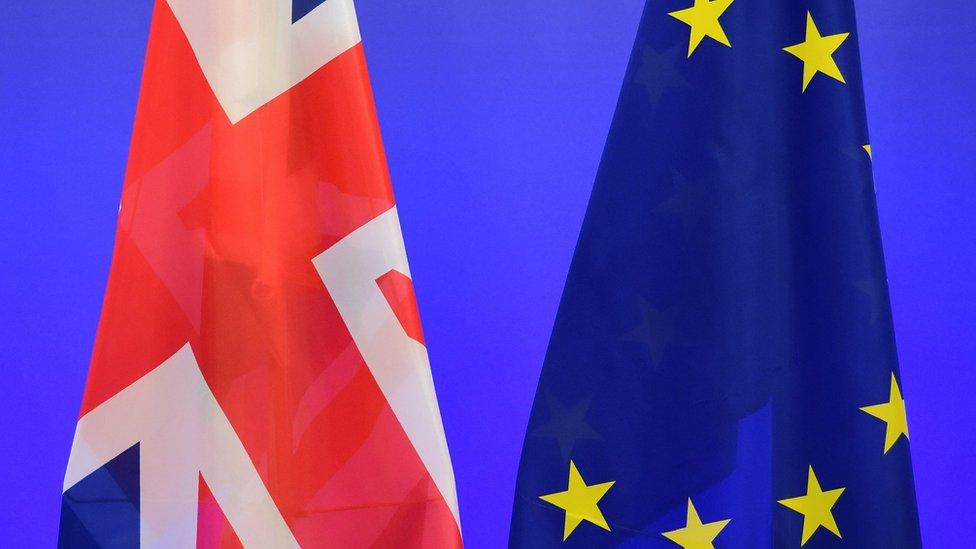Bank says EU makes UK more dynamic
- Published
- comments

Membership of the European Union has made the UK a more open and dynamic economy, the Bank of England has concluded in a 100-page review of the impact on it of EU membership.
Being in the EU has drawn investment to the UK, boosted the productivity of workers, and enhanced the ability of our economy to create jobs and new businesses.
In that sense, although the Bank does not use these precise words, EU membership has made the UK richer and more successful.
That will be seized on by supporters of the UK staying in.
Vulnerable
Even so, there is ammunition for eurosceptics - namely that our financial openness made the UK more vulnerable to the eurozone's crisis, and that not all EU regulation suits the size and complexity of the City of London.
The Bank is for example an opponent of the EU imposed cap on bonuses, because it sees the cap as weakening the link between what bankers are paid and the risks they take.
More than that, the Bank is concerned that future integration of the euro area, deemed to be essential for the sustainability of the euro, could lead the EU to devise laws and rules that are against the interests of the UK.
So it implicitly supports the attempt of the Chancellor, George Osborne, to obtain guarantees from Brussels that the UK will be protected if euro members gang up to force through legislation that suits them but not us.
Control
Or to put it another way, the Bank of England, which prides itself on its independence, may not be seen to be clinically independent in its assessment of the impact on its ability to fulfil its mandate - of controlling inflation and preventing major financial shocks - by those ideologically opposed to the UK being in the EU.
Because on the one hand the Bank makes it clear that being in the EU has made us richer. And the Bank will be seen as supporting the thrust of much of the government's negotiations to improve the terms of the UK's membership.
So what I said this morning, that the out campaigners would be happier with the thrust of the Bank's review than those who want to stay in, is wrong (I think).
There is no suggestion by the Bank, as I said, that the Bank could not do its job perfectly adequately if the UK were to leave the EU. But there is an unambiguous implication that EU membership makes its job easier.